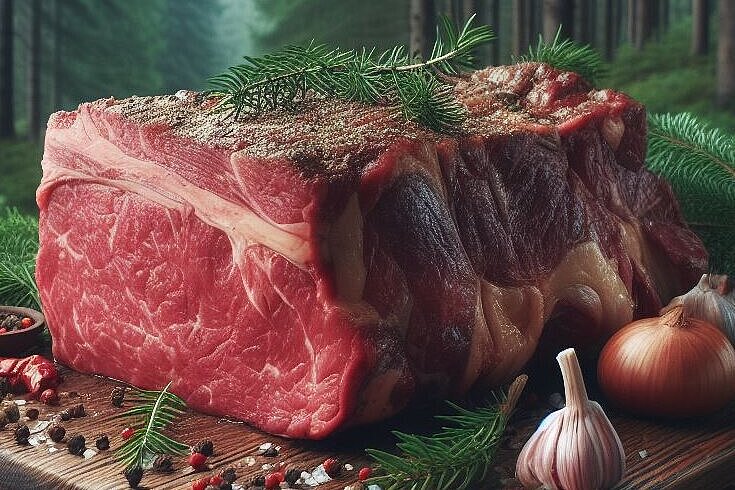Thiamine hydrochloride

What is thiamine hydrochloride?
Thiamine hydrochloride is a water-soluble compound consisting of thiamine (vitamin B1) and hydrochloric acid. Thiamine is an essential vitamin that dogs cannot produce themselves and must therefore obtain from food. Thiamine hydrochloride is a stable form of thiamine that is often used as a dietary supplement or in veterinary medicines.
What functions does thiamine hydrochloride have in the dog's body?
Thiamine hydrochloride acts as a coenzyme in various reactions within the carbohydrate metabolism. This means that it helps to convert carbohydrates from food into energy, which the dog needs for its bodily functions. Thiamine hydrochloride also supports the function of the heart, blood vessels and nerves.
What are the benefits of thiamine hydrochloride for dogs?
Thiamine hydrochloride can help with vitamin B1 deficiency in dogs, which can lead to various symptoms. These include:
- Loss of appetite
- weight loss
- weakness
- trembling
- restlessness
- anemia
- growth disorders
- Heart and nerve diseases
A vitamin B1 deficiency in dogs can be caused by various factors, such as
- An unbalanced diet
- Intestinal diseases
- Pancreatic problems
- medication
- pregnancy
Thiamine hydrochloride can therefore be useful as a dietary supplement or as an ingredient in veterinary medicines to prevent or treat vitamin B1 deficiency in dogs.
What are the disadvantages of thiamine hydrochloride for dogs?
Thiamine hydrochloride generally has no disadvantages for dogs if it is used in the correct dosage. As it is a water-soluble vitamin, any excess is excreted in the urine and not stored in the body. However, care should be taken not to give too much thiamine hydrochloride, as this can lead to side effects such as diarrhea or vomiting.
How to dose thiamine hydrochloride for dogs correctly?
The correct dosage of thiamine hydrochloride for dogs depends on various factors, such as the weight of the dog, the reason for use and the product being used. You should therefore always read the package leaflet or ask your vet for advice before giving your dog thiamine hydrochloride.
However, the following dosage is a guideline:
- 0.5 mg per kilogram of body weight per day with a normal diet
- 1 mg per kilogram of body weight per day if there is an increased requirement (e.g. during pregnancy or illness)
Thiamine hydrochloride can be administered as a tablet or as a solution. Care should be taken to ensure that the dog swallows the preparation well and does not spit it out. Care should also be taken to ensure that the dog has sufficient water available.
Thiamine hydrochloride is an important source of vitamin B1 for dogs, which has many health benefits for dogs. It can help with vitamin B1 deficiency in dogs, which can lead to various symptoms. Thiamine hydrochloride generally has no disadvantages for dogs when used in the correct dosage. However, you should always read the package leaflet or ask your vet for advice before giving your dog thiamine hydrochloride.
Properties 2
Are you looking for other ingredients with a specific property?
Just click on them to find more.
If you notice any signs of hypersensitivity or poisoning in your dog, you should see your vet immediately. We are not a substitute for a vet, but we try to be as accurate as possible. Every dog reacts differently and we recommend you get a second opinion or consult your vet if in doubt.
Stay healthy and take good care of your four-legged friend!😊
Similar to Thiamine hydrochloride
Vitamin B1 is a water-soluble vitamin that is found in many foods. The best sources of vitamin B1 include meat, fish, yeast, wholegrain products, nuts and seeds. Vitamin B1 cannot be stored by the...
Carbohydrates are organic compounds consisting of carbon, hydrogen and oxygen. They can be divided into simple and complex carbohydrates: Simple carbohydrates (monosaccharides) consist of one or...
Beef is the meat of various breeds of domestic cattle (Bos taurus) that are bred for meat production. There are many different cuts of beef that are suitable as dog food. These include Muscle meat:...
Chicken meat is the meat of domestic chickens bred for human and animal consumption. It is a type of poultry meat and is available in various cuts such as breast, thigh, wing or offal. Chicken meat...



